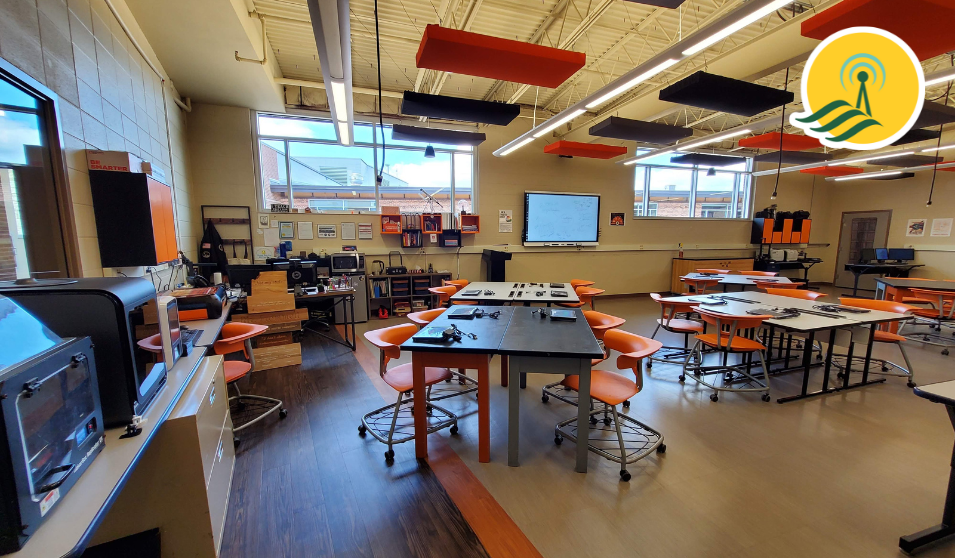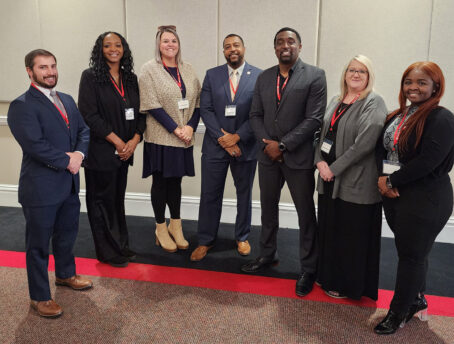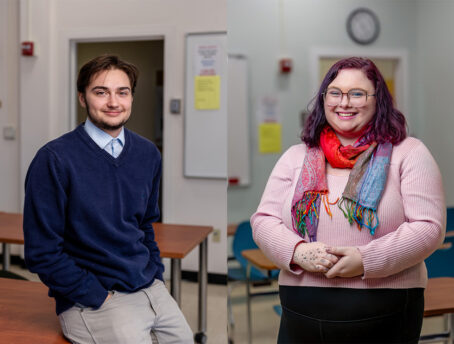Listen to the podcast here:
You can also find our podcast on Apple Podcasts, Stitcher, Google Podcasts and Spotify.
Written version:
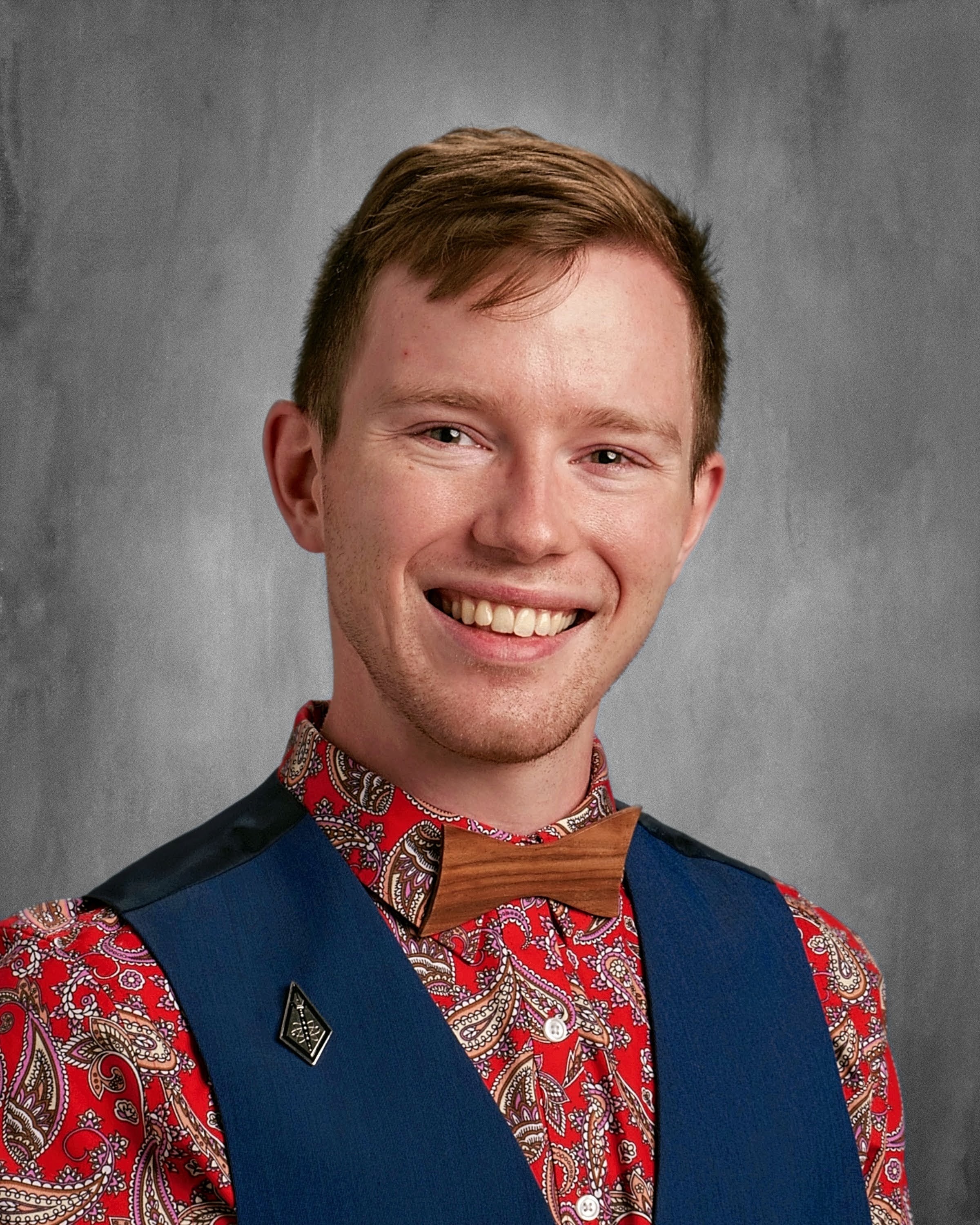
Hello, and welcome to the I Am A Rural Teacher Podcast, a project of Rural Schools Collaborative.
Max Frommelt, a digital media teacher in Wisconsin and a member of RSC’s Young Educators’ Advisory Council, is only in his second year of teaching at Dodgeville High School, but he has hit the ground running by building an innovative, new program from scratch. In this episode, we talked with Max about his own experiences in school and how they led him to become the teacher he is today.
Max grew up near Dodgeville, in rural Platteville, so he was already familiar with the rural way of life.
We are at the edge of the city. I go through and walk to school because it's only a few blocks, and if I take a hard left I end up going into the cornfields right behind the house, and take a hard right and I'm in the heart of the city. And so, I would say it's probably the largest small town you'll ever see without it getting super big.
He shared how growing up in a rural area with a university nearby afforded him several opportunities to build his own identity in a supportive, familial community.
Growing up, I tried all kinds of things, was very active in Boy Scouts, was very active and being in all different clubs and organizations, and that just helped me to not only reach out but also broaden my horizons. Because the benefit of a small town is you know everyone, you have a close family. The drawback to a small town and rural living is that you don't get a lot of larger experiences. And so that was something that my parents really advocated for and really pushed me for. So, my life was a weird dichotomy of like a super rural family and living area, while also having all of these experiences because my parents really valued that.
Only once he attended college did Max discover a passion for teaching. He decided to come back to a rural place to finish his teaching education and begin his career due to his love for rural as well as his admiration for the teacher education program at the University of Wisconsin - Platteville.
I wanted to continue to grow, broaden my horizons, and nothing like having a three-hour drive between where you're from and college to really teach you how to grow up and be an adult the hard way. So that led to a lot of self-discovery, understanding my identity, who I was and who I was as a person, which then led into me discovering teaching.
I had to make a hard choice near my senior year in Milwaukee of going into teaching - I know I want to go into education - do I stay in Milwaukee, or do I go back home? Because Platteville had a good education program as well. I would be able to do more locally within a rural city and be able to challenge myself in that perspective. And so then I transferred back to Platteville in order to finish my teaching degrees, so then I went from just the one certificate in broad field science I would have gotten in Milwaukee, to then transferring to Platteville to get my broad field certification along with my environmental science and earth and space science certifications.
Max focuses his classes through the lens of STEAM education - Science, Technology, Engineering, Arts, and Mathematics - and instructs students in several areas of digital media. He explains how the STEAM mindset helps his students be more prepared for life post-graduation.
At my school, Dodgeville High School, it was the same school I student taught at, they really liked me, and at that point they had a new position open up for a STEAM educator. And so it's adding arts into STEM because the realization came to be is, wow, we're really good at making engineers who can't explain anything. That's not the most helpful when you're trying to prep people for the real world!
Part of me not doing well in school is I sucked at taking standardized tests. I was so bad at it, could not grasp it. Even if it was a true or false question, that would trip me up. And so all of my classes are structured with project-based learning and exploratory learning, and so it's not something where, oh, can you verbatim state, ‘This is exactly what is a digital audio workspace?’ It's not definitional. It's all about: can you create this website? What tools can you use in it? Can you create a podcast? Because that is multi-layered. That's talking about scripting, storytelling, it's talking about the technology. How do you isolate and condense that audio?
I always wanted to have it be a little intense, to have that real world situational awareness, but also to let them know, hey, just because you're not good at this one thing, that should not dictate that you fail this class. You should be able to practice these skills, utilize them in a wide variety of options, in order to succeed. Because that's what the real world is. You're gonna fail at some point in your job, you're gonna get yelled at by a manager, it just happens. The most important thing is how you learn from that failure, so that way you fail successfully and keep going.
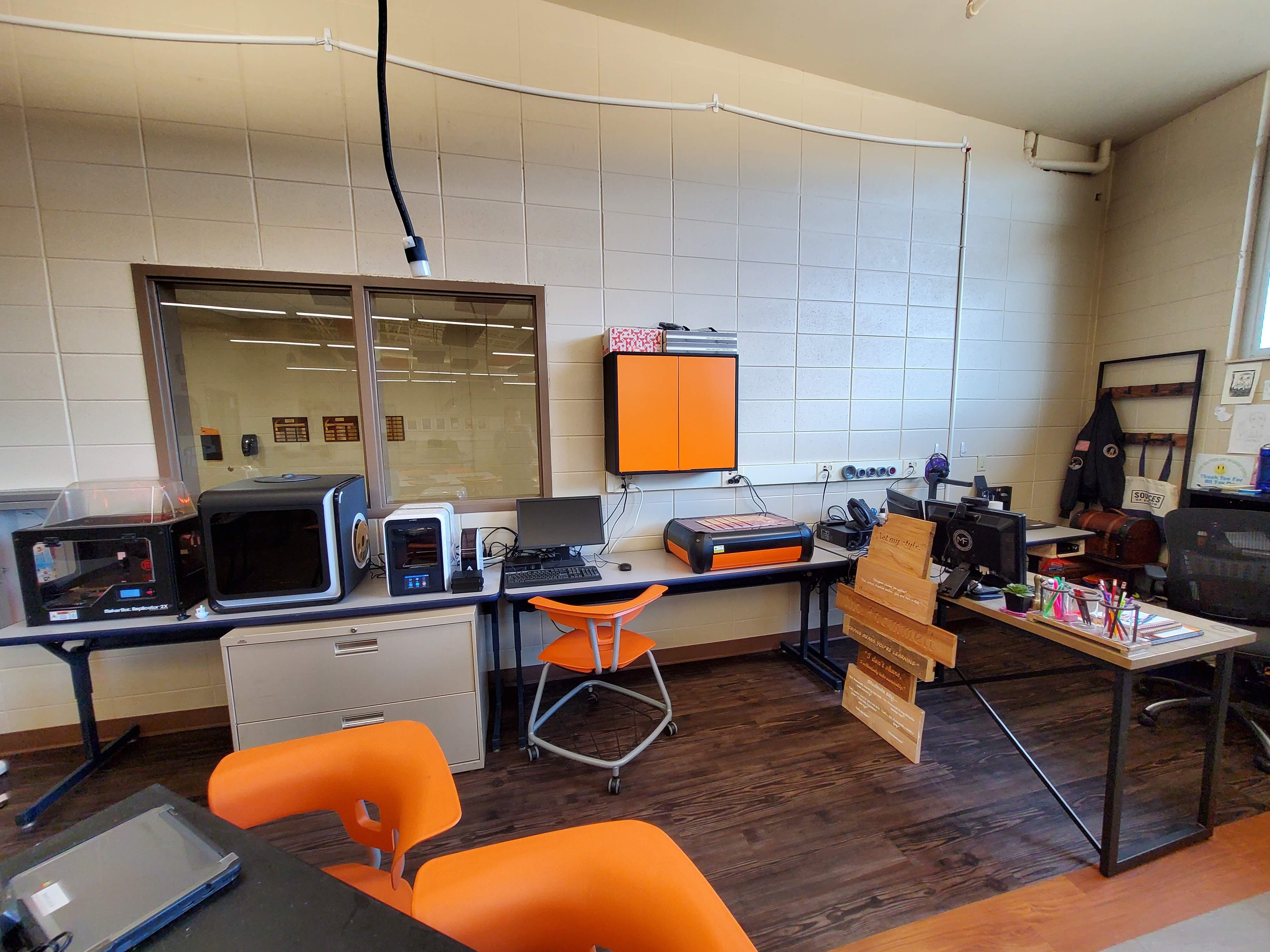
With technology changing at a rapid pace, Max’s class content can change a lot year by year and he’s often creating new content himself. He shared that one project in particular helps students place their current world in the context of history.
So the very first day that students are enrolled in the course, one of the breakout activities to help parse out going through a syllabus, which is about as riveting as it sounds, I do…it's called an artifact understanding. And so each and every group gets a bag that's labeled, and inside is a digital media artifact that they probably have never seen before. I have piano scrolls from old pianos that had to wind up. I have a floppy disk, which to this day still kills me, every time students see it they're like, ‘Oh is this like the save icon?’ And I'm like, ‘No, this is a real thing, but I'm gonna let you figure it out.’ A lot of historical artifacts because it helps to understand how far we've come.
And how they tie that in in a different way, because that’s just one activity, we do career journals in class. And so I specifically add careers that have only existed within the past three to five years…which internet-wise seems ancient because of how fast the internet goes. But it's a really good chance for students to then like, ‘What questions do you have about this career? Here's something that literally you saw on TikTok or on the news yesterday as a career - what questions do you have about it? Let's find these answers, knowing that this potentially could be a career path for you.’
He also discusses how building his program from the ground up has enabled him to put a good emphasis on diversity and inclusion.
Diversity has always been a big point we try to bring up in Dodgeville because, as a rural city and just a rural community, it is fairly homogeneous. We don't have a lot of students of color, we don't have a lot of students from super ethnic backgrounds that aren't traditionally ‘southwestern Wisconsin.’ Typically, we don't have a super large representation of LGBTQ+ individuals. And so, that isn't to say that we don't have those individuals in our school, it's just sometimes really hard to address and sometimes tackle those bigger questions of: how do we open up, how do we let people in openly and willingly? When we really don't have a large representation of that population to directly work with.
So, the benefit of a lot of my curriculum is it's brand new, I'm developing it all from scratch, so it’s all things that I’m engineering myself versus just borrowing or using materials from other people. And part of that is, within the CTE standards, is the standard for addressing global connections and tackling diversity. A lot of it is more just bringing your awareness around the fact that, typically, the people that you see are very homogeneous and look just like you; that doesn't mean there aren't people and minorities and groups of individuals that are represented in those spaces who know so much more.
Like many educators, Max had a teacher who greatly impacted his own education, as well as his drive for physics and science. He shared how this teacher met him where he was and led him to greater achievement.
A lot of people see me as the professional I am now, and they're like, ‘Oh, this person has always had it together. Mr. Frommelt in the classroom is always put together, knows what he's doing and has these research experiences and has done a lot.’ What a lot of students tend to not believe, or don't know, is that in high school I just kind of floated by. I was not the stellar student. I was not even close to getting straight A’s.
When it came for my junior year, for me to take physics, I was just kind of getting C's and B's, and we had a new teacher jump in. And so his name was Matt Heer. He really challenged me within my first test, gave back to me, and I flunked it - hard - did not do well at all. So then I had kind of cowered, put my tail between my legs, and I went to him and I was like, ‘Listen, I've only ever skated by, I've only ever just gotten by in school, I've never had a challenge and I really don't know how to study…so I would like your help in trying to figure that out.’ And he looked me dead in the eyes and he was like, ‘That's the first step we need to take. you met me halfway, I'll meet you there.'
Most notably, Mr. Heer was instrumental in Max’s involvement in the NASA HUNCH program.
He had emailed out myself and a few other students that I had known an application. So I submitted that, and what I didn't know is that was for our pre-application for a NASA research group. He had gotten us into that group, and it was a big challenge because the main purpose of the group is to develop hardware for the International Space Station. And so we had done this year of just hard research, really practically applying science, which is what had me re-fall in love with science. And so after going through all that we went down to the Johnson Space Center tested it in microgravity, and it was super awesome and exciting. And also the realization that if you're willing to work hard, there are opportunities out there to get you to where you want to go...I just spent the last year, tail between my legs, admitting I don't know this, I want to know this, I'm going to work at it. And that translated into a year of research where we presented our findings to the head of the Johnson Space center and a panel of astronauts. And for the head of the Johnson Space Center to be like, ‘This project is good, we want to use this,’ is a really humbling and also a really exciting experience.
Max’s favorite memory as a teacher feels like a full-circle moment when considering his relationship with Mr. Heer; he also pushes his students to be better, which can lead to frustration as well as success.
I would say one of my favorite moments as a teacher is seeing a lot of my students fail successfully. And in particular the one story that comes to mind…once you go through any of my courses, there's always a final project. Because there should be something that you are pulling apart and doing better on because no one goes through a course the first time and nails everything a hundred percent. I had a student go through, and two of them were working and trying to think about, ‘What are we gonna do for our final projects for digital media? We have five work days, 90 minutes, what are we going to do to prep?’ They were trying to figure it out, and they were stressed, and one of them got a little teary-eyed. And then all of a sudden they stopped and they were like, ‘I know exactly what I have to do,’ and just left.
These students were in a totally different class in a different area of the building. So then I just get a cryptic email from my English teacher at the high school who's like, ‘How do you make students cry and they're not even in your classroom?’ And I have no idea this is happening. I'm like, ‘What do you mean my students are crying? What is going on?’ And so the two from there had come to my room and had explained their whole ideas and everything, and then one of them just looked at me and was like - you know, in the epiphany - was like, laughing, and they're like, ‘You know what? Maybe all it takes is a little bit of crying.’ And then the other one goes, ‘Yeah, crying means you're learning!’ And that then became the quote with my classroom. Everyone was like, ‘Oh, in Mr Frommelt’s room, crying means you're learning!’ And I'm like, this has gotten so out of hand. So I have to explain this to my boss being like, ‘I didn't do this on purpose!’
Still taking his beginning steps into the professional world himself, Max is keenly aware of how his students are growing into young adults. He reflected on how his relationships with his students continually fill him with youthful energy, and they often remind him of himself.
That's what makes it so much fun to teach this age level. Because it's the same like dichotomy of: you soon, within a blink of an eye, you are legally going to be what our society considers an adult and fully functioning…and at the same time i'm trying to teach you how to write your name at the top of the paper every single time I give you a paper. Really, what makes, really helps reinvigorate me as a teacher, is when a student finally gets it who couldn't get it before, or they have an idea that they are passionate about. Because before I was just guiding them through ideas they were taking whatever I gave them. And so I think that's where I really like project-based learning because I can see them get really excited about learning. They're making something. This is something they can take home and show people.
For Max, the push and pull between challenging students and encouraging them truly makes teaching the most fulfilling endeavor he’s ever pursued.
I've even had a few parents reach out to me and they're like, ‘My student never comes home and talks about anything school related besides saying that it was good, but yours is the one class they will actively tell me about and be excited and show me what they did.’ And so that really helps to refill my cup and re-energize me as a teacher, knowing that I'm doing something right. Even at the same time, getting emails from other parents who are like, ‘What are you doing? You don't know what you're doing.’ And so it's always…teaching is such a dichotomy of an experience that there really isn't anything else like it.
Thank you for engaging with this episode of the I Am A Rural Teacher Podcast. We’d like to thank our partners at the University of Wisconsin - Platteville and the National Rural Education Association for collaborating with us on this episode. The I Am a Rural Teacher project is made possible by a grant from The Bill & Melinda Gates Foundation.

